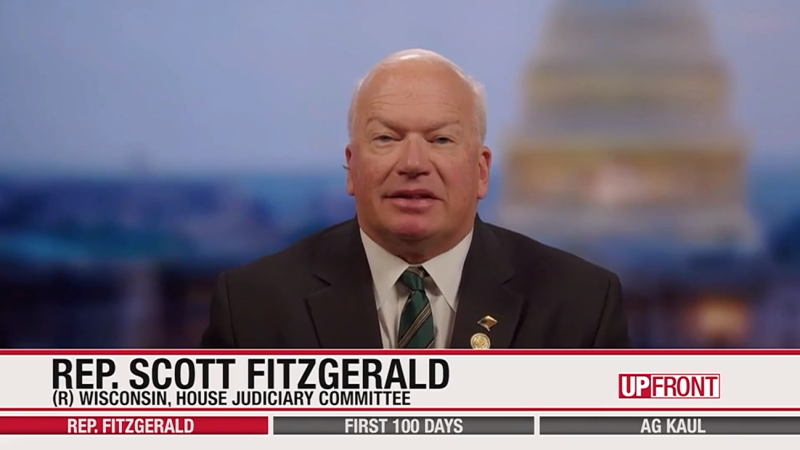Visit WisPolitics-State Affairs for premium content,
keyword notifications, bill tracking and more
Home » WisPolitics News » Fitzgerald says House Judiciary Committee closely watching Dugan case

U.S. Rep. Scott Fitzgerald, a member of the House Judiciary Committee, says Republican lawmakers in Congress are closely watching the fallout after the FBI arrested Milwaukee County Judge Hannah Dugan. "There's been a lot of discussion with Chairman Jordan about that," Fitzgerald said on WISN 12's "UpFront," which is produced in partnership with WisPolitics. "I don't think anything has really full...